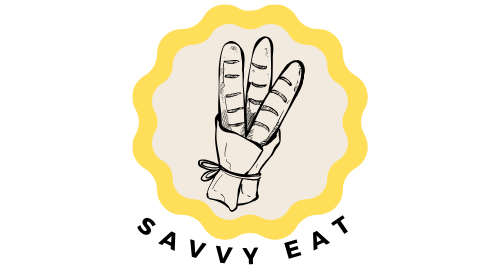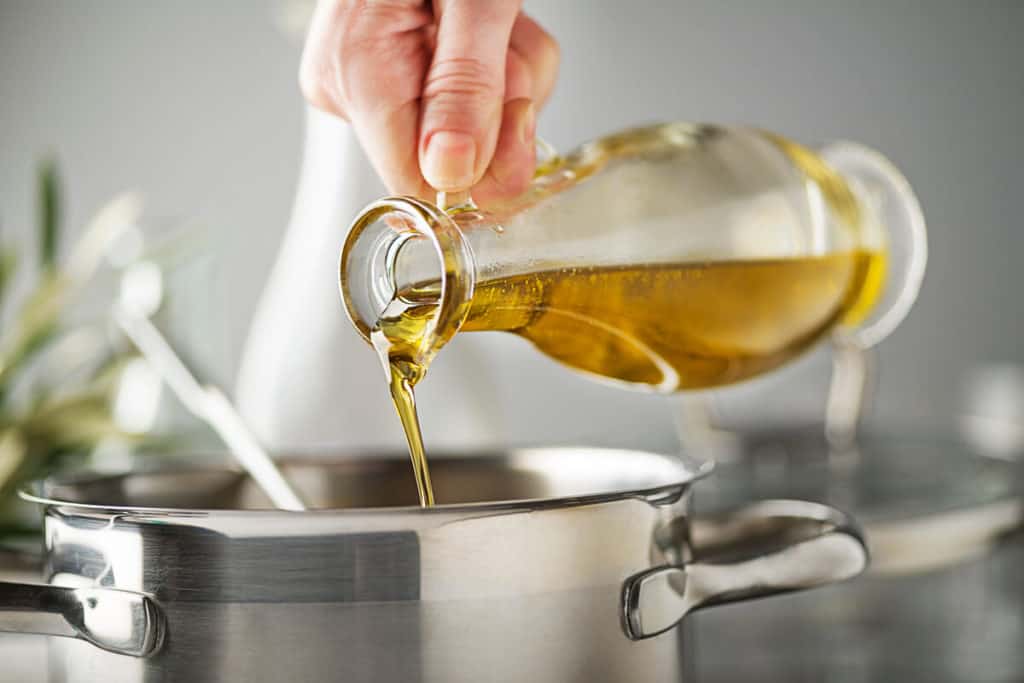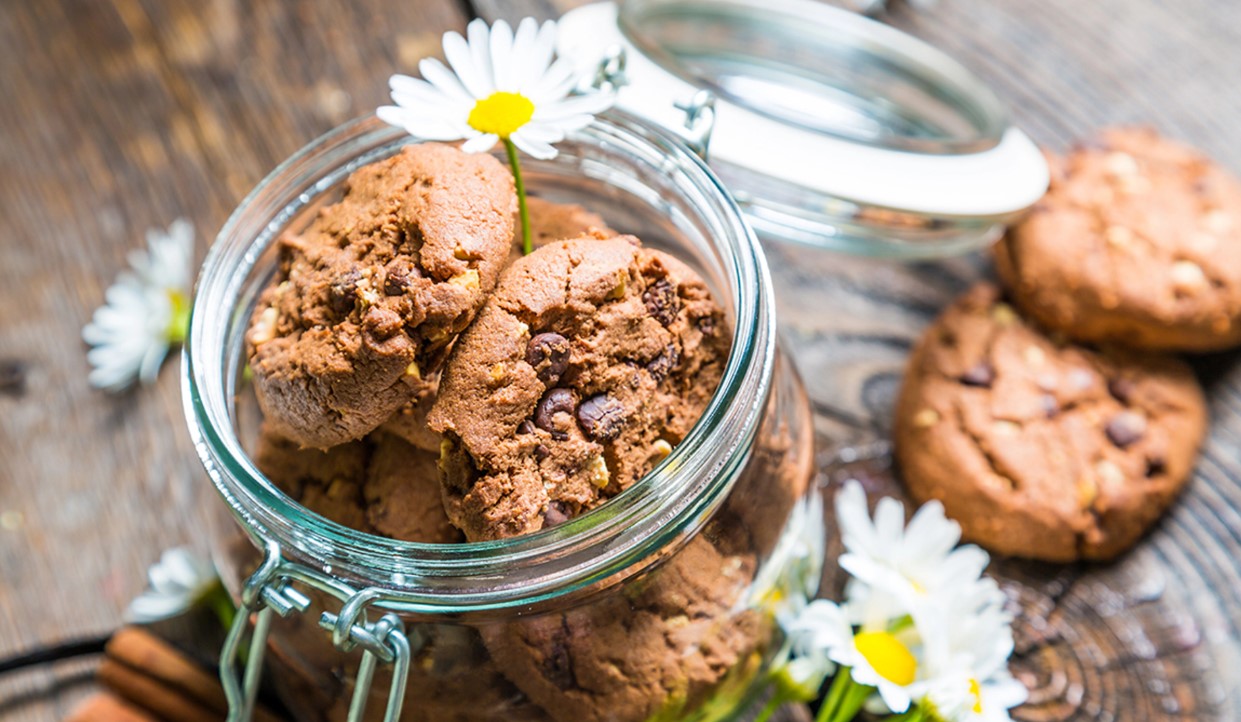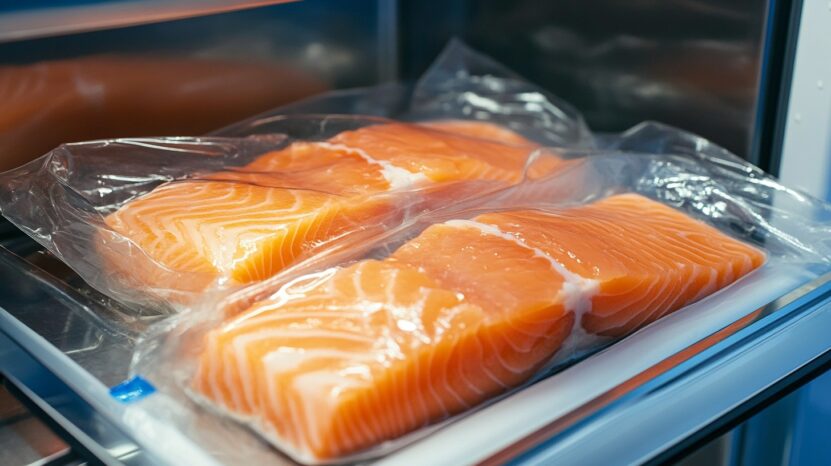
Share Post:
Salmon is a popular and healthy seafood choice, loved for:
- Great taste
- Versatility
- Health benefits
And let’s not forget the color! I love its color, even though I’m not a big fish fan.
But a common question is: how long can you keep cooked salmon in the fridge?
This is an important question because it affects the safety and quality of the food. If salmon isn’t stored properly or kept too long, it can spoil, which not only affects the flavor and texture but can also be harmful to your health.
Refrigeration Timeline
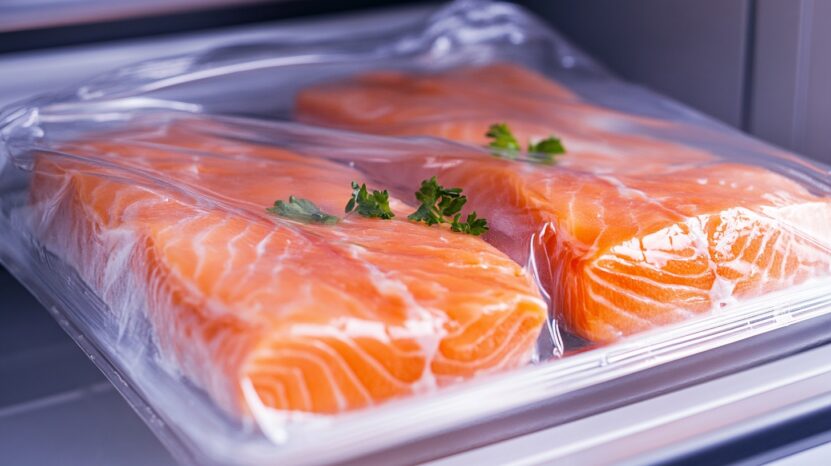
Cooked salmon can remain safe to eat in the fridge for 3 to 4 days, provided it’s stored correctly.
- Freshness Before Cooking: The fresher the salmon was before you cooked it, the longer it’s likely to last in the fridge. If you start with very fresh fish, it might stay good a little beyond the three-day mark.
- Cooking Method: How you cook the salmon also plays a role. Salmon that is thoroughly cooked will generally last longer than salmon that are only partially cooked or undercooked, as proper cooking kills more bacteria.
- Storage in the Fridge: Proper storage is key to extending the shelf life of cooked salmon. It’s important to store the fish in an airtight container or wrap it tightly with plastic wrap or aluminum foil to prevent air exposure and contamination.
Despite these factors, it’s crucial to remember that even in the fridge, bacterial growth continues at a slower rate. Refrigeration doesn’t stop bacteria from multiplying entirely; it only delays the process.
- Always rely on your senses to check for spoilage. If the salmon smells off or has a slimy texture, it’s best to throw it away, even if it hasn’t been in the fridge for the full three days.
Ultimately, while refrigeration can help preserve cooked salmon for a short period, it’s important to consume it within a reasonable timeframe to avoid potential health risks.
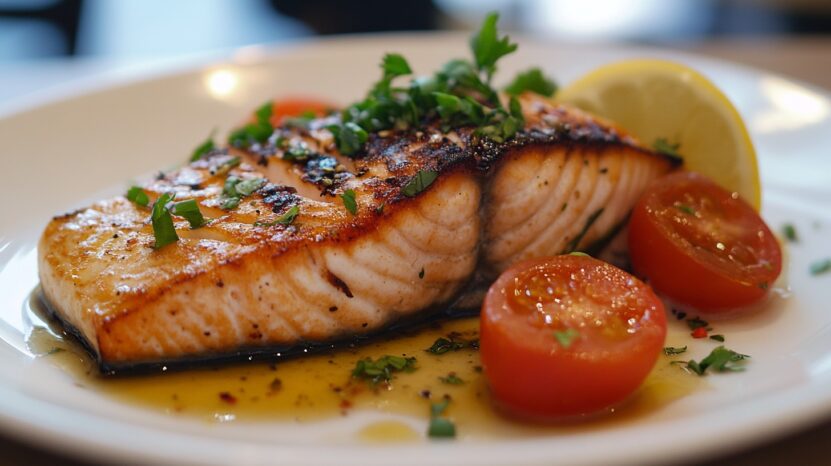
How to Extend the Shelf Life?
You can make cooked salmon last longer by using the right packaging and storage methods.
To keep it fresh in the fridge, store the salmon in an airtight container or wrap it tightly in aluminum foil or plastic wrap. It helps protect it from air and moisture, which can cause it to spoil faster.
If you want to keep your cooked salmon for a longer time, freezing is a great option. Cooked salmon can be frozen for up to six months without losing much quality. To freeze it properly, first, let the salmon cool to room temperature.
Then, wrap it tightly in aluminum foil or plastic wrap and place it in a freezer-safe bag or container.
Make sure to remove as much air as possible from the bag or container before sealing it to avoid freezer burn. When you’re ready to eat the salmon, let it thaw in the fridge overnight.
Once thawed, it should be eaten within two days. It’s important not to refreeze the salmon once it’s been thawed.
Major Signs of Spoilage
Identifying signs of spoilage is key to ensuring the food you eat is safe. Here are the most common indicators that your cooked salmon may have gone bad:
Foul or Off-Putting Smell
One of the first signs of spoiled salmon is a strong, unpleasant odor.
Freshly cooked salmon has a mild, slightly sweet aroma. If it smells fishy, sour, or overly strong, it has likely spoiled and should not be eaten.
Changes in Color and Texture
Fresh salmon should have a uniform pink or orange color and a moist, flaky texture.
- Dryness: If the fish looks dry or tough, it could be a sign that it has spoiled.
- Discoloration: Any noticeable fading or dark spots, particularly around the edges, may indicate the salmon is no longer fresh.
- Sliminess: A slimy or sticky texture on the surface of the fish is a common sign of spoilage and should prompt you to discard it.
Presence of Mold
Any visible mold on the surface of the salmon, whether white, green, or black, is a clear indication of spoilage.
Moldy food should never be consumed, even if the moldy portion is small.
If you’re ever uncertain about the freshness of your salmon, it’s always safer to discard it rather than risk foodborne illness.
Storage Tips for Leftovers
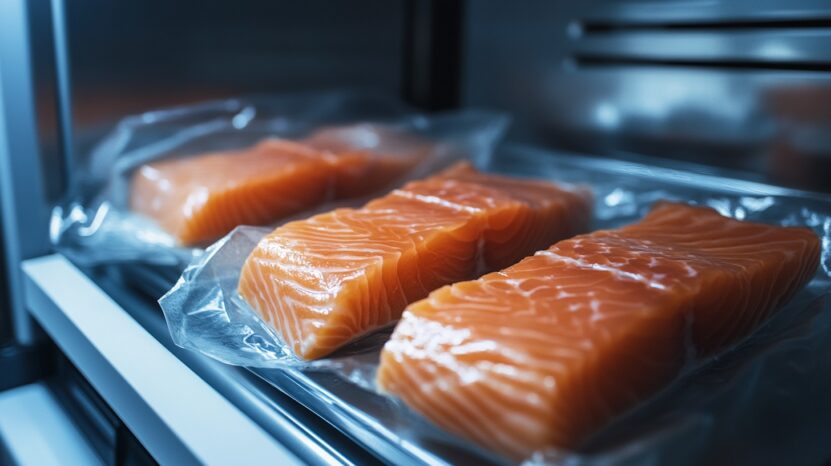
Leftover fish can make for a quick and nutritious meal, but it’s important to store it properly to maintain its quality.
| Tip | Details |
|---|---|
| Cool Before Storing | Refrigerate after cooling to room temperature to prevent bacteria. |
| Use Airtight Containers | Airtight containers preserve texture, flavor, and prevent odor absorption. |
| Alternative Wrapping Methods | Wrap tightly in foil or plastic if containers aren’t available. |
| Portion Leftovers | Portion leftovers to avoid reheating and prevent spoilage. |
For more interesting insights, you can check out more of our content, like freezing vegetables, such as chives.
The Bottom Line
Cooked salmon can be safely refrigerated for up to 3 to 4 days if stored properly in an airtight container or tightly wrapped.
Prompt refrigeration after cooking and following proper storage methods will help maintain its freshness, flavor, and texture.
Always be mindful of the time the salmon spends in the fridge and trust your senses, if it smells off or has changed in texture, it’s best to discard it.

